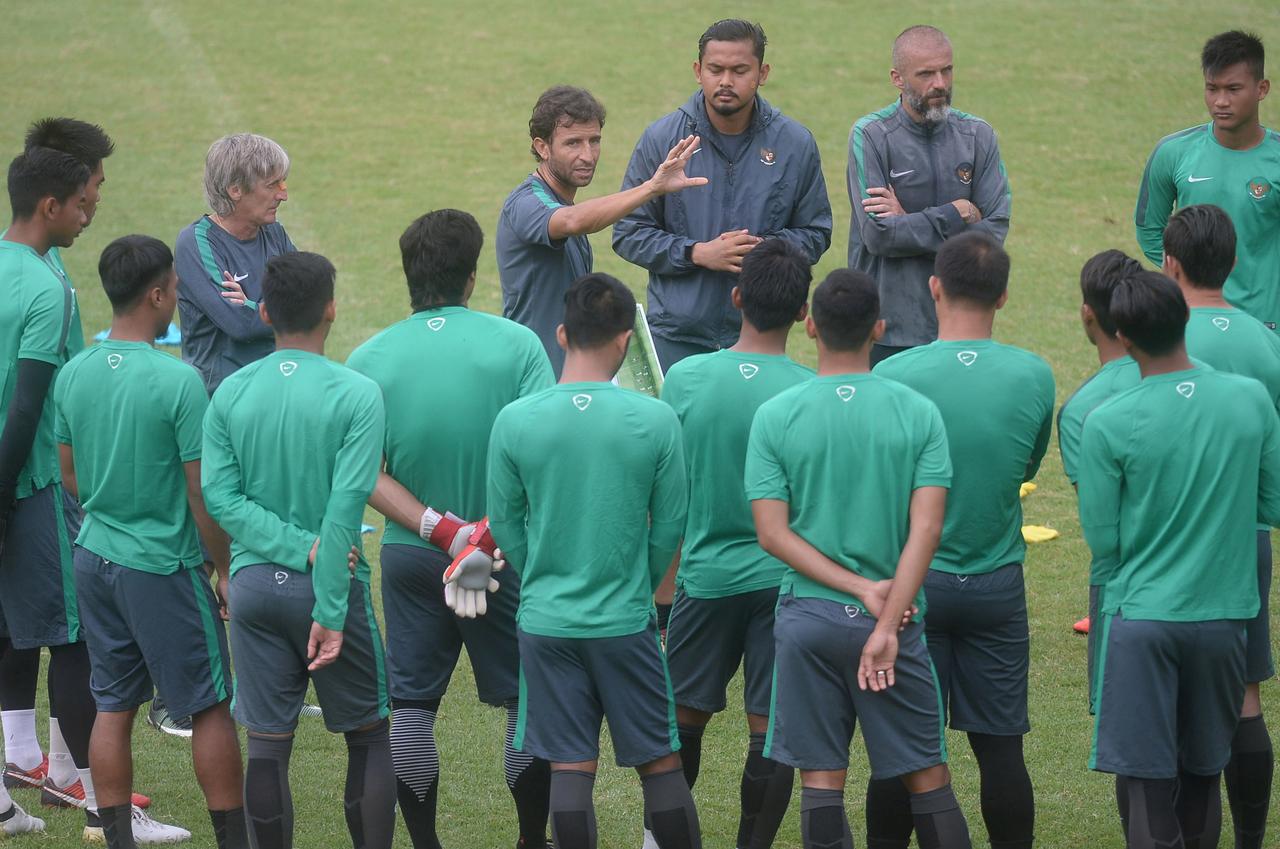After a seven-year hiatus, Indonesia return to World Cup qualifying on Thursday against regional rivals Malaysia in Jakarta’s imposing Gelora Bung Karno Stadium hoping for a change in fortunes and frustrated by a parochial draw.
Double-digit thrashings and lengthy bans have marred the country’s qualifying bids over much of the last decade and current coach Simon McMenemy is slightly deflated by the challenge handed to his team for the campaign for Qatar 2022.
In addition to Malaysia, Indonesia will take on Thailand and Vietnam - as well as top seeds United Arab Emirates - over the next 10 months in a group that has stoked huge interest in the football-mad region but which has dissatisfied the Scotsman.
“It’s not really the draw I wanted, not from a performance perspective but more from the point of view that we play these teams all the time and it limits the experience that Indonesian players get,” McMenemy told Reuters.
“I want these guys to be able to go and compete in Asia and we keep going and playing the same teams in South East Asia. We don’t get to compete against Turkmenistan and those sorts of countries, the difficult opponents we’re going to come across at the Asian Cup.
“I wanted to try to expose the players more to Asian opposition rather than South East Asian opposition, so when I saw the draw it was double-edged for me.”
Indonesia regularly face off against the likes of Vietnam, Malaysia and Thailand in the Asean Football Federation Championship but McMenemy, who was appointed head coach after the team’s exit from the AFF Championship, is keen to broaden his players’ horizons.
Despite the huge popularity of the sport in a nation where the representative team can pull in crowds of 90,000 and league games are often played in front of 40,000 or more, Indonesia is ranked 160th in the world and 33rd in Asia.
That’s a far cry from the country’s football heyday. In 1938 they became the first nation from Asia to qualify for the World Cup when, known as the Dutch East Indies, they represented the continent at the finals in France.
But Indonesia has had a tumultuous relationship with the sport in recent years and the meeting with Malaysia will be the first played by the national team in World Cup qualifying since February 2012, when they were on the end of a controversial 10-0 thrashing by Bahrain.
Damaging period
That match was played during the height of a damaging period for the sport that saw rival professional leagues facing off and the PSSI, the governing body of Indonesian football, suspended by FIFA for governmental interference during a long-running saga.
The ban came into effect midway through 2015 and ruled the country out of the qualifiers for the finals in Russia in 2018 while also preventing the country’s club sides from participating in continental competition. It was not lifted until a year later.
As a result, Indonesia’s exposure to leading Asian nations such as Japan, South Korea and Saudi Arabia has been limited, allowing the gap to the grow at a time when other South East Asian nations have been showing promise, especially at youth level.
McMenemy, however, remains confident his team can make an impact on the competition, despite his misgivings.
“There is a positive because it inspires optimism,” he said of the draw.
“The supporters believe we have a good chance against these guys, and rightly so, but from a coach’s perspective when you play derby games passion and mentality become a big part of the performance and that can get to be too much sometimes.
“And that has happened with Indonesian players in the past because they lose their discipline because their passion takes over a little bit.
“In these games they’re going to be tested home and away and for a coach it makes predictable players become unpredictable and that’s what I don’t like in terms of planning for games.
“But it’s quite a positive draw with the opposition we face and their standing. There’s a lot of confidence we can do well, it’s just I would have liked to have stepped a bit further out of South East Asia.”


















































